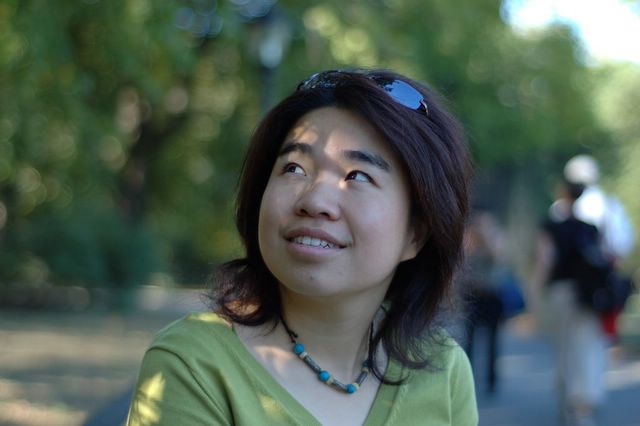
The Stranger, or The Outsider, (from the French L’Étranger, 1942) is a novel by Albert Camus. It is one of the best-known examples of absurdist fiction.
Albert Camus, like Meursault, was a pied-noir (literally black foot)—a Frenchman who lived in the Maghreb, the northernmost crescent of Africa along the Mediterranean Sea, the heart of France's colonies.
Usually classed as an existential novel, The Stranger is indeed based on Camus's theory of the absurd. In the first half of the novel Meursault is clearly an unreflecting, unapologetic individual. He is moved only by sensory experiences (the funeral procession, swimming at the beach, sexual intercourse with Marie, etc). Camus is reinforcing his basic thesis that there is no Truth, only (relative) truths—and, in particular, that truths in science (empiricism/rationality) and religion are ultimately meaningless. Of course, Meursault himself isn't directly aware of any of this -- his awareness of the absurd is subconscious at best; it 'colors' his actions. But Camus's basic point remains: the only real things are those that we experience physically. Thus, Meursault kills the Arab because of his response to the glaring sun, which beats down upon him as he moves toward his 'adversary' on the beach. The death of the Arab isn't particularly meaningful in itself: it's merely something else that 'happens' to Meursault. The significance of this episode is that it forces Meursault to reflect upon his life (and its meaning) as he contemplates his impending execution. Only by being tried and sentenced to death is Meursault forced to acknowledge his own mortality and the responsibility he has for his own life.
Another theme is that we make our own destiny, and we, not God, are responsible for our actions and their consequences (non-determinism or existentialism).
Truth is another motif in the book. Meursault, despite being judged by many of his contemporaries as immoral or amoral, is consistently honest and direct. In his unyielding candor, he never displays emotions that he does not feel. Neither does he participate in social conventions calling for dishonesty. Although grief is considered the socially acceptable or "normal" response, Meursault does not exhibit grief at his mother's funeral. This incorruptible honesty takes on a naïve dimension when he goes through the trial process; he questions the need for a lawyer, claiming that the truth should speak for itself. Much of the second half of the book involves this theme of the imperfection of justice. It is Meursault's adherence to the literal truth that proves his undoing—a public official compiling the details of the case tells Meursault he will be saved if he repents and turns to Christianity, but Meursault is truthful to his atheism and refuses to pretend he has found religion. More generally, Meursault's honesty overrides his self-preservation instinct; he ultimately accepts punishment for his actions, and refuses to try evading justice.
As previously mentioned, a main theme is the absurd, and it is a theme that at times throughout the book seems to override the 'responsibility' aspect of the powerful ending. The ending seems to reflect that Meursault is in fact satisfied with his demise, to the extent that one can be satisfied with death, while also of course being terrified, whereas the erstwhile sensory observations, which were mostly stand-alone and, if they did impact him, did so in terms of something physical (e.g. "I became tired"), become very relevant to his self and being. It seems that, in facing death, he's found the first true feeling and revelation and happiness. But even that revelation was in the "gentle indifference of the world". A central contributor to this theme was that of the pause after he shot the Arab for the first time. In one key moment, while being interviewed by the magistrate, he mentions how it did not matter that he waited and shot four more times. In this incident, Meursault thinks completely objectively, and truly there is no difference in tangible results: the Arab died in one shot, and four more shots did not make him any "more" dead. This is seen also in his reflection on the absurdity of humanity creating a justice system to impose such meaningful actions as "death" upon a human: "The fact that the [death] sentence had been read at eight o'clock at night and not at five o'clock... the fact that it had been handed down in the name of some vague notion called the French (or German, or Chinese) people--all of it seemed to detract from the seriousness of the decision".
In writing the novel Camus was influenced by other existentialists such as Jean-Paul Sartre and Martin Heidegger. Camus and Sartre in particular had been involved in the French resistance during World War II and were friends until ultimately differing on their philosophical stances.
Ultimately, Camus presents the world as essentially meaningless and therefore, the only way to arrive at any meaning or purpose is to make it oneself. Thus it is the individual and not the act that gives meaning to any given context. Camus deals with this issue, as well as man's relationship to man and issues such as suicide in his other works such as A Happy Death and The Plague, as well as his non-fiction works such as The Rebel and The Myth of Sisyphus.


没有评论:
发表评论